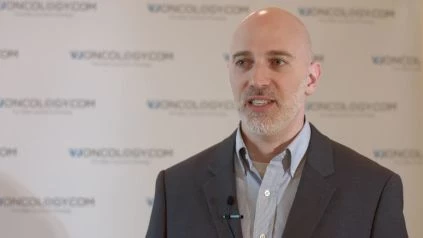Isaac Brownell, MD, PhD of the National Cancer Institute, Bethesda, MD discusses current studies into Merkel cell carcinoma while attending the 2016 World Congress on Cancers of the Skin (WCCS) and the Congress of the European Association of Dermato-Oncology (EADO) in Vienna, Austria. According to Dr Brownwell, with rare cancers like Merkel cell carcinoma, studies are typically small as it is difficult to recruit a large number of patients. Over time, as more patients are treated a better understanding can be achieved. In each trial, the drug was either given before or after conventional chemotherapy was tried, it is necessary to test the drug in both conditions to show whether the drugs work in treatment resistant cancer or cancer that has never been treated with another type of drug. These type of trials are ongoing as well as additional trials to learn more about the mechanism by which checkpoint inhibitors help control Merkel cell carcinoma and to answer the question why does Merkel cell carcinoma seem to respond more than other solid tumors to checkpoint inhibitors?
[the_ad id="32629"]

